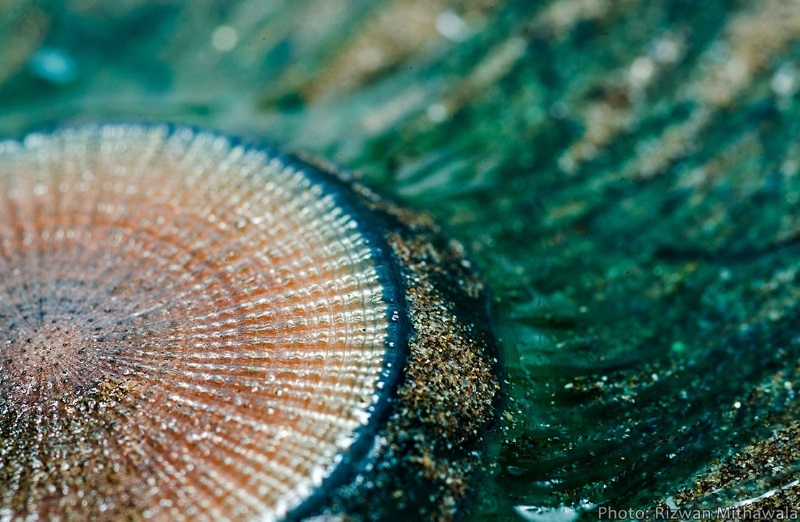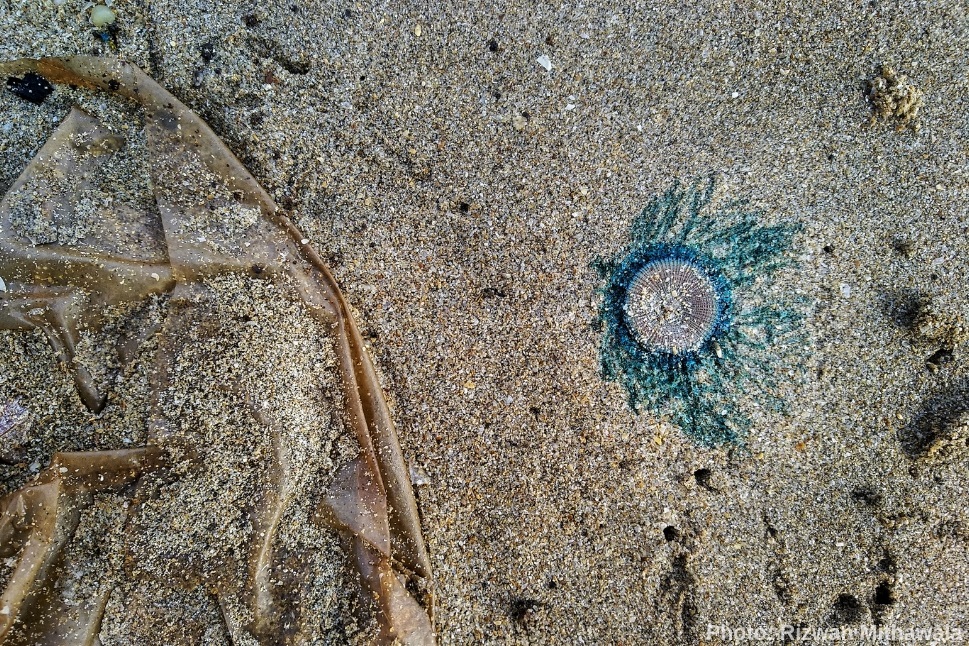
A freshly washed-ashore specimen of Porpita porpita is a thing to behold, before it is smothered by tar balls, plastic and other trash (see second picture) on city beaches.
Porpita porpita is surely among the prettiest of marine creatures you are ever going to encounter on a shore. Commonly called blue button, and often misidentified as a jellyfish, biologically speaking, it’s not one creature but a colony of zooids, each performing specialised roles – stinging and preying, defending the colony from predators, and producing more of their kind.
So much for coordinated living, it passively floats on the surface of the sea, and is propelled by wind and ocean currents. If those extremes don’t amaze you, digest this – Porpita porpita are hermaphrodites, that is, they have both male and female reproductive apparatus.
These free-floating carnivorous colonies inhabit tropical waters in the Indian, Pacific and Atlantic Oceans; and feed on small marine animals like copepods, crab larvae and juvenile fish. Photographed here is a regular sight at the onset of, and during the monsoon on the shores of Mumbai. A couple of hundred and sometimes even a thousand blue buttons are washed up at Chowpatty and other city shores.

While these strandings are a natural phenomenon, and may have little connection with any anthropogenic factors, this beautiful marine species, in its stranding and eventual death on our polluted beaches, is holding a mirror to all mankind. Smothered by tar-balls and ocean plastic, a thing of beauty meets an ungraceful end. Is it not analogical of what we are doing to the earth?
(The Sea Around Us will be a blog series celebrating the kaleidoscope of life forms that inhabit the oceans, and putting a spotlight on the pressures they endure to survive in the human age.)
Disclaimer: The author is associated with Wildlife Conservation Trust. The views and opinions expressed in the article are her own and do not necessarily reflect the views and opinions of Wildlife Conservation Trust.
——————————————————————————————————————————————————————
Rizwan Mithawala is a Conservation Writer & Editor with the Wildlife Conservation Trust and a Fellow of the International League of Conservation Writers.
——————————————————————————————————————————————————————
Disclaimer: The author is associated with Wildlife Conservation Trust. The views and opinions expressed in the article are his own and do not necessarily reflect the views and opinions of Wildlife Conservation Trust.
Related Links
- Otters In Tiger Country
- Protecting Our Protectors – Health Challenges Faced By India’s Frontline Forest Staff
- Reinforce rules in tiger corridors, buffer zones: NTCA
